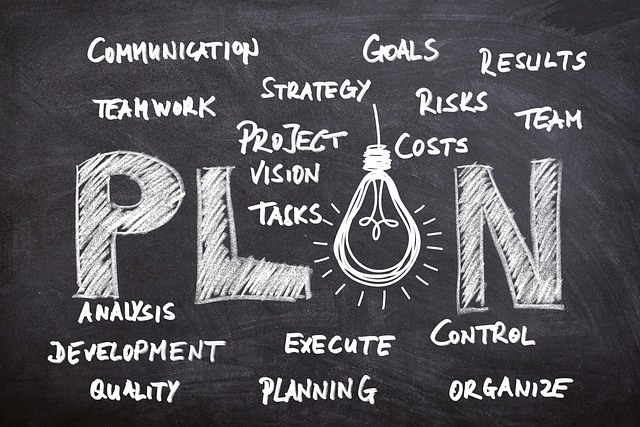Understanding Mental Fatigue
Mental fatigue can often sneak up on us, weighing heavily on our everyday tasks and goals. Imagine waking up after a good night’s sleep yet feeling like a thick fog looms over your mind. You grapple with feelings of lethargy, difficulty concentrating, and the frustrating inability to muster the motivation to tackle the day’s responsibilities. Mental fatigue is more than just a passing feeling; it stems from prolonged cognitive exertion, whether it’s work-related stress, emotional overload, or even the relentless stream of information that modern life continuously throws at us. The brain, much like a muscle, requires rest and rejuvenation. When we forget to give our minds breaks, we create a perfect environment for mental fatigue to flourish. As we face everyday pressures, understanding the root causes and effects of mental fatigue becomes essential for overcoming it effectively.
Recognizing the Symptoms of Mental Fatigue
Before we can effectively combat mental fatigue, we must first recognize its signs. Symptoms can manifest in various ways, often leading to misunderstandings about their origins. Some people may start to experience irritability, feeling on edge or easily frustrated. Others may notice a decline in focus, as their minds wander during essential tasks. Physical symptoms may also present themselves, like headaches or an increased heartbeat when stressed. Importantly, mental fatigue can also lead to a decrease in overall enthusiasm for activities that one previously enjoyed. As social beings, we thrive on connection and purpose, so when mental fatigue undermines our joy in activities or relationships, it can evoke feelings of isolation and disconnection. A clear understanding of these symptoms can help one acknowledge mental fatigue early, allowing for timely interventions.
The Impact of Mental Fatigue on Achievement
Mental fatigue doesn’t just hinder our well-being; it can dramatically affect our achievement levels. Whether in our professional lives or personal pursuits, mental fatigue stands like a barrier, preventing us from reaching our potential. Think of a time when you struggled to engage with a project or felt unproductive at work. Mental fatigue can create an uphill battle against your own goals. Cognitive tasks require effective brain functioning. However, fatigue clouds judgment and diminishes creativity. The paradox lies in the fact that we might push ourselves harder, thinking we can simply ‘will’ our way through exhaustion. However, research shows that this approach often leads to burnout. Moreover, prolonged mental fatigue can result in chronic stress, which has a cascading stroke effect on physical health, emotional balance, and social relationships. By recognizing this concerning relationship, we place ourselves in a better position to navigate away from the crippling effects of mental fatigue.
Strategies for Overcoming Mental Fatigue
So, how do we begin to tackle mental fatigue effectively? The first step involves understanding the importance of mental breaks. Make it a priority to step away from your tasks regularly. Whether it’s a five-minute stretch, a short walk, or even a brief distraction into a good book, these pauses are crucial for mental rejuvenation. Incorporating mindfulness practices, such as meditation or deep breathing exercises, into your routine can also work wonders. These practices allow individuals to center themselves, helping clear the mental clutter that leads to fatigue. Next, examine your workload. Are you taking on too much? Know your limits and practice the art of saying no when necessary. Setting boundaries is key to prevent overwhelming oneself. Importantly, remember the body and mind connection. Regular physical exercise can counteract mental fatigue drastically. Something as simple as a brisk walk can boost your mood and spark new energy. Combine physical activity with a balanced diet, rich in vitamins and nutrients, to fuel your body adequately.
Maintaining Motivation Amidst Challenges
Staying motivated during times of mental fatigue can feel like climbing a mountain. But remember, motivation is not a constant; it fluctuates. In approaching motivation, it’s vital to reframe your thinking around the concept. Instead of equating motivation with perpetual energy, view it as a series of small wins. Set achievable goals. Each victory, no matter how small, provides a boost that alleviates feelings of fatigue. Visualization techniques can also enhance motivation. Envision your goals and the emotions linked with achieving them. Create a Vision Board and place it in a noticeable location. This can serve as a reminder of your aspirations and keep you motivated on tough days. Alongside visualization, positive affirmations can rewire thinking patterns, encouraging a success mindset. Repeat affirmations like, “I can accomplish my goals,” or “I possess the strength to push through.” Such statements gradually foster a constructive inner dialogue that fuels motivation even in trying times.
The Role of Community and Support Systems
One often overlooked aspect of maintaining motivation and overcoming mental fatigue is the role of community. Engaging with supportive friends or family can greatly uplift your spirits. Sharing your struggles can facilitate understanding and compassion, making the burden feel lighter. Surrounding yourself with like-minded individuals who share your ambitions can be inspiring. Consider joining groups or communities focused on mutual goals. This serves as a reminder that you’re not alone in your journey. Together, you can celebrate wins and strategize ways to overcome challenges. Moreover, professional support such as counseling can provide valuable tools and techniques to methodically deal with mental fatigue. Admitting that you need help is a strong step towards healing. With support systems, exchanging ideas and coping strategies can lead to a more fruitful path towards maintaining motivation.
Developing a Resilient Mindset
A resilient mindset plays a crucial role in overcoming mental fatigue and staying motivated. Resilience involves bouncing back from adversity and maintaining a positive outlook amid challenges. Cultivating such a mindset requires intentional practice. For instance, keeping a gratitude journal can reshape your perspective, allowing room for appreciation against a backdrop of fatigue. Daily reflections on what you are grateful for foster a sense of abundance rather than scarcity. Additionally, embracing failure as a learning tool can reshape how you approach setbacks. Each failure can provide insights that guide you toward growth. Establishing a routine that incorporates aspects promoting self-love and acceptance can help reinforce resilience. Allocate time for activities that bring you joy. This commitment to joy helps buffer against fatigue, allowing space for a growth-oriented mindset to flourish.
Practicing Self-Care as a Preventative Measure
Self-care emerges as a pivotal component in managing mental fatigue and sustaining motivation. Thanksgiving starts with recognizing your own value and needs. Everyone’s self-care routine is different; hence, it’s essential to discover what rejuvenates you personally. It could be soaking in a warm bath, indulging in a heartfelt movie, or diving into a creative project. Establishing a self-care schedule can also be particularly beneficial. It could range from daily rituals, such as morning stretches, to weekly escapades allowing time for exploration and excitement. Checking in with oneself through methods like journaling can help gauge emotional status. Consider asking yourself: “How am I feeling today?” Often, simply acknowledging emotions can bring clarity to mental fatigue. Beyond introspection, engage in activities that prioritize your well-being. This not only enhances your happiness but also indirectly fosters the motivation required for long-term success.
Regularly Evaluating Progress
The process of tackling mental fatigue and fostering motivation doesn’t culminate overnight. Regularly evaluating progress proves essential in this journey. Assessments can come in various forms; for instance, setting a weekly checkpoint to review goals and obstacles faced can allow reflection and adjustment. During these evaluations, recognize any patterns in fatigue—what caused it, and how it manifested. Alongside this, celebrate successes, no matter how minor. This practice reinforces a success mindset and instills encouragement. As one discovers methods that work, it’s essential to document these findings. Creating a journal dedicated solely to tracking progress can serve as a cornerstone for future motivation. By acknowledging your journey and how far you’ve come, you create a powerful source of inspiration to draw from during harder times. The journey is ongoing, and patience becomes your greatest ally.
Conclusion: Embracing the Process
In overcoming mental fatigue and staying motivated, the most significant lesson lies in the understanding that it’s a continuous and evolving process. Life’s challenges will ebb and flow, throwing moments of fatigue into our paths. While it may seem overwhelming, recognizing that mental fatigue is a common experience can provide solace. With strategies aimed at fostering resilience, developing a success mindset, and placing priority on self-care, one can cultivate an environment conducive to mental well-being. As you engage in this journey, embrace the ups and downs as integral parts of the process. Remember, it’s not always about the destination but the growth that occurs along the way. With each effort you exert, you’re paving the path towards a more motivated and fulfilling life.
FAQ
What is mental fatigue?
Mental fatigue refers to a state of tiredness and decreased cognitive function associated with prolonged mental activities and may arise from stress, emotional strain, or continuous information overload.
How can I identify if I am experiencing mental fatigue?
Signs of mental fatigue include irritability, difficulty concentrating, reduced enthusiasm for activities, and physical symptoms like headaches or low energy levels.
What strategies can help overcome mental fatigue?
Effective strategies include taking regular breaks, practicing mindfulness, exercising, setting realistic goals, and ensuring a balanced diet to nourish the brain and body.
How can I stay motivated despite mental fatigue?
Staying motivated involves breaking tasks into manageable steps, using visualization techniques, celebrating small victories, and surrounding yourself with a supportive community.
What role does self-care play in managing mental fatigue?
Self-care is crucial as it involves prioritizing your emotional and physical well-being. Engaging in activities that bring joy and relaxation helps combat mental fatigue and sustains motivation over time.



